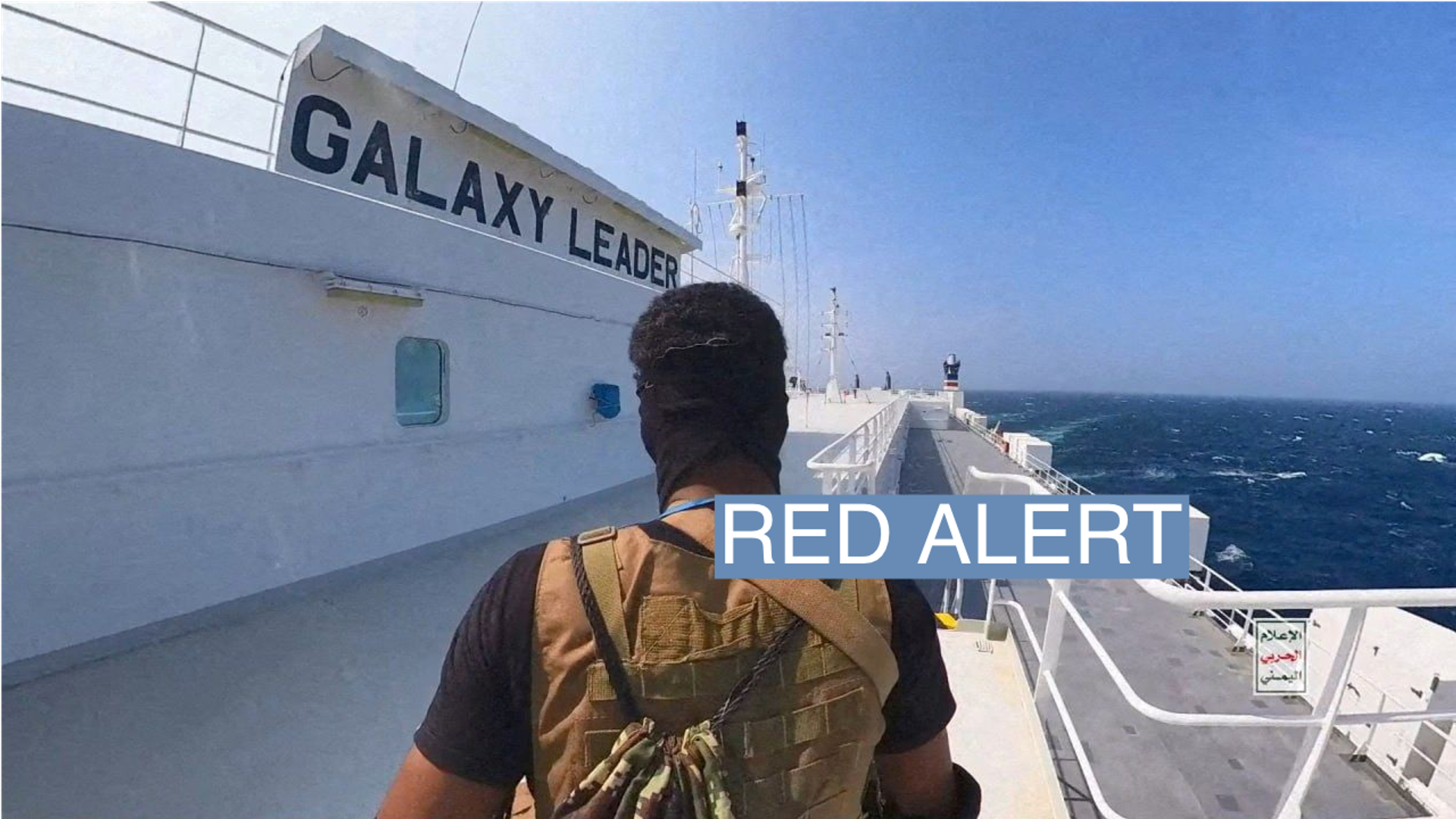The News
China is warning the U.S. against escalating its attacks on Yemen’s Houthi rebels, as the conflict in the Red Sea increasingly threatens both Beijing’s economic and diplomatic interests.
The Houthis’ months-long campaign to restrict maritime traffic moving through key Middle East waterways is a particular threat to China, which is heavily reliant on the Suez Canal and Bab-el-Mandeb Strait to move Chinese products to European markets. China is also more dependent than the U.S. on oil and gas imports from countries like Saudi Arabia, the United Arab Emirates, Iran, and Qatar.
“China is concerned about the escalating tension in the Red Sea and calls on relevant parties to exercise calm and restraint to prevent the conflict from escalating,” Beijing’s Foreign Ministry spokesman Mao Ning told reporters on Friday. “China calls on relevant parties to play a constructive and responsible role in keeping the Red Sea safe and stable, which serves the common interests of the international community.”
China declined to join a U.S.-led coalition of forces, called Operation Prosperity Guardian, which began policing the Red Sea last month.
On a broader level, the growing military exchanges between the U.S. and Houthis threaten China’s Mideast diplomatic interests. Last spring, Beijing stunned Washington by brokering a normalization of relations between Saudi Arabia and Iran, the Houthis’ primary military backer. The deal was based, in part, on Iran’s commitment to China to cut off military supplies to the Yemeni militia and constrain Houthi attacks on Saudi and international targets.
But Tehran in recent weeks has praised the Houthis’ Red Sea operation, and Iran’s elite military unit, the Islamic Revolutionary Guard Corps, has embedded personnel among the Yemeni militia’s forces, according to U.S. and Arab officials.
In this article:
Jay’s view
China’s dealmaking with Iran and Saudi Arabia was seen as the start of Beijing rivaling, if not potentially supplanting, the U.S as the Middle East’s principal power broker. Beijing has also used Israel’s three-month war with the Palestinian militant group Hamas — and Washington’s unflinching support for the Jewish state — to try and drive a wedge between the U.S. and its closest Arab and Muslim allies. But the Red Sea conflict is emerging as a threat to Beijing’s strategy.
A key early question about China’s normalization deal with Tehran and Riyadh was whether Beijing could use its economic and diplomatic heft to essentially force both countries to abide by its terms. Curtailing Iran’s military support for the Houthis was always seen as probably the biggest test. But recent months show Iran is far more committed to maintaining the Houthis as a proxy force than it is to any diplomatic deals it struck with China.
Mideast officials told Semafor this week they were always skeptical Iran would neuter the Houthis. “No one expected any of that to actually happen,” a senior Arab official said.
China now finds itself somewhat boxed in. Beijing, on the one hand, needs the Suez Canal and Bab-el-Mandeb Strait to remain open, and could benefit from the U.S. restoring deterrence against the Houthis. But China has positioned itself as a challenger to the U.S. in the region and has so far refused to back an operation, either militarily or rhetorically, that serves its interests.
Know More
The Pentagon announced Tuesday that they interdicted a vessel off the coast of Somalia last week that was ferrying Iranian-manufactured ballistic missile and cruise missile components to the Houthis.
“This is the first seizure of lethal, Iranian-supplied advanced conventional weapons (ACW) to the Houthis since the beginning of Houthi attacks against merchant ships in November 2023,” the U.S. Defense Department’s Central Command said in a statement.
Central Command also announced Tuesday that U.S. forces struck and destroyed Houthi missile batteries in Yemen that were preparing to launch more strikes against commercial traffic into the Red Sea.
The View From The White House
The Biden administration has sought China’s assistance in restraining Tehran and its proxies in the wake of Hamas’ Oct. 7 terrorist strike on southern Israel. Hamas, like the Houthis, are heavily reliant on Tehran for its weaponry. “China obviously has relations in the region,” a senior U.S. official told reporters during Chinese Foreign Minister Wang Yi’s October visit to Washington. “We think it should be using those connections to call for calm on all sides. And I think some of their comments publicly have focused in one particular direction.”
The White House has also sought to bring Beijing into the coalition of countries seeking to prevent the Houthi attacks. This includes the nations participating in Operation Prosperity Guardian. But the U.S. also passed a resolution through the United Nations Security Council last week condemning the Houthis’ actions, which China and Russia abstained from voting on.
Notable
- The Biden administration is poised to relist the Houthis as a terrorist organization on Wednesday, The Wall Street Journal reported. The White House repealed the designation in February 2021 in a bid to promote peace talks in Yemen and accelerate the flow of humanitarian supplies into the Arab country.
